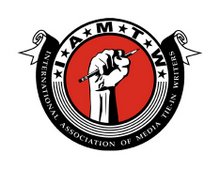The creative team at Wizards of the Coast, which owns Magic, had created an excellent Writers Guide, as a private working document for novelists, which was immensely helpful to me. They also gave me numerous links to specific pages on their vast website, thus whittling down the overwhelming sea of available information to just the stuff I really needed. The game’s creative team met with me by conference call to discuss the game, the setting, and its characteristics with me, and to answer my questions. My editor was readily available with information, answers, and feedback whenever I needed it. And the editorial team, in charge of the whole series of books that create an overall story arc for these characters and this world, gave me notes about where they’d like the story to start, a few things they’d like to see happen, and where they’d like the story to end.
She elaborated on the experience in another post:
And although I’d never before had to write a novel about something I was so totally ignorant of (i.e. the Multiverse of Magic: the Gathering) I had recently finished a year of graduate school, where you spend most of your time writing authoritative research papers about subjects that were totally unfamiliar to you only a few weeks earlier. So getting up to speed fast on a subject, and figuring out just how much background material you need to learn and command, and avoiding certain pitfalls that appear when you haven’t had time to learn a subject like the palm of your hand… these were all habits I had developed in academia and now applied to my gaming tie-in novel (since, among other things, the deadline was also much tighter than what I’m used to).
It's an interesting perspective from a "newbie" to the world of tie-ins.








